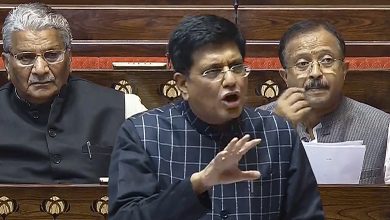COVID-climate crisis leads to rise in child marriages in Sundarbans
New Delhi, Sep 26 (PTI):
Shackled by poverty in a home that came under water when Cyclone Amphan barrelled into her village and left penniless by the pandemic, the hapless mother married off her 15-year-old daughter their story emblematic of the Covid-climate crisis in the Sundarbans that has seen a sharp rise in the number of child marriages.
It was May last year, recalled Rashmi Devi (name changed to protect privacy). With only a tent as cover for her seven-member family following the super cyclone and no money for food, the marriage proposal for her young daughter seemed like a godsend. “We could barely manage one meal every day and the decision to get her married seemed right at the time. In my mind I thought there will be one less mouth to feed and she will get more than just salt and rice to eat,” the mother told PTI over the phone from Canning in the Sundarbans that falls in West Bengal’s South 24 Parganas district.
Sixteen months later, the decision doesn’t seem so right. The family is still in dire straits and her son-in-law is behind bars on charges of dowry harassment. Rashmi’s family is not the only one.
Communities in the ecologically fragile Sundarbans delta region are still reeling under the impact of the COVID-19 pandemic and climate change, say survivors and activists.
According to the NGO Goranbose Gram Bikash Kendra, 159 child marriages have been reported in the South 24 Parganas district since 2020. This includes 64 from January to August this year and 95 from 2020. In 2019, before the pandemic, 68 child marriages were recorded in the area.
“A number of areas in the region have been washed away due to the rise in water levels which has displaced a large number of people who were then forced to migrate due to financial insecurity and vulnerabilities. In the Sundarbans area, we saw the number of child marriages increase exponentially due to the pandemic and climate change effects,” said Subhasree Raptan of the NGO that works on issues of human trafficking, child rights and climate change impact.
In most cases, she said, agriculture has become unviable due to the increase in salinity of the water because of sea level rise. As a result, people try to marry off their young daughters, thinking it will help them get settled and also relieve them of their “burden”.
“Traffickers know this vulnerability and they exploit the situation. In the initial Covid days, a lot of information about child marriages was coming and also children were not going to school so it was adding up,” she said.
Sixteen months after Cyclone Amphan, Rashmi is still picking up the pieces of her life and wondering how did everything go so wrong. They are still living in a plastic tent. And her young daughter is far from being secure in her marital home. The mental harassment began soon after the marriage, she said.
“When my daughter heard her husband was sending her away to someone’s house she grew suspicious and contacted her family following which her husband was arrested and is still under custody,” Rashmi said.
——————————————————








